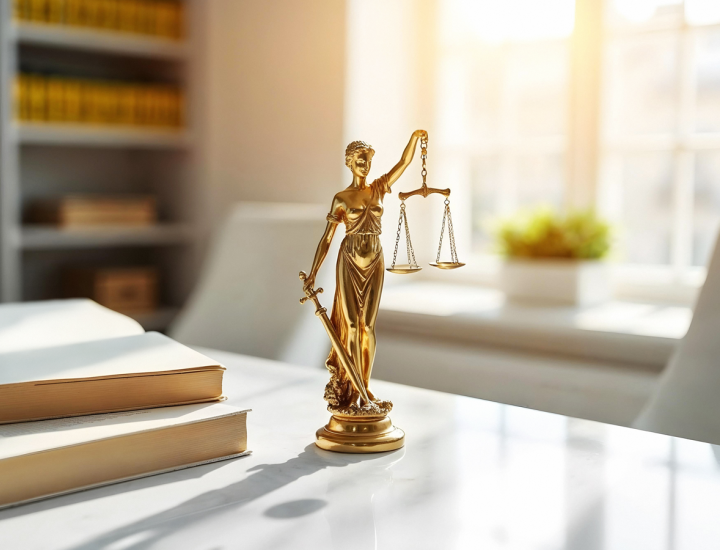
Justice is Indivisible: Why Should the Law Apply to Everyone?
At the heart of every modern state and stable society, justice stands as an indispensable cornerstone. Justice is not merely a slogan echoed in speeches or a banner raised in courtrooms — it is a comprehensive system of legislation, institutions, and practices that guarantee rights, protect freedoms, and deter injustice and abuses. True justice begins when every individual — regardless of their status — feels they have a place within this system, and that their dignity and rights are protected by law, not by whims, connections, or influence.
Justice Is Not a Slogan but a Daily Practice
For justice to bear fruit, it must move from a theoretical concept to a tangible practice in people’s daily lives. The ordinary citizen, the investor, the worker, and the doctor must feel they have a safe refuge to turn to when their rights are violated. They must trust the judge, the lawyer, the police officer, and the administration to all serve the truth, not private interests. This trust is not built overnight; it is established through fair and equal application of the law and through oversight bodies and institutions that hold wrongdoers accountable and correct missteps.
The Neutrality of the Law Is Proof of a State’s Strength
A state that organizes its laws well and applies them fairly to all proves its solidity and its capacity to maintain social order. The neutrality of the law is the primary safeguard that prevents the disintegration of societies and confirms that everyone — from the highest authority to the simplest citizen — stands on equal ground before the law. No one is immune from accountability, and no privileges are granted outside the letter of the law.
When this neutrality is achieved, manifestations of corruption recede, networks of influence shrink, and the culture of “connections” fades. But if this balance falters, and the law is used for personal or selective purposes, trust gradually erodes, and society begins to slip toward chaos.
Legal Equality: The Hallmark of a State That Respects Itself
No law has value if it is not applied justly, and no judicial institution has meaning if it does not guarantee complete equality before it. Legal equality means that decisions are not made based on identity, affiliation, or wealth, but solely on objective rights. It is the true measure of a government’s legitimacy, as it reassures citizens that the law is their protector, not a burden over their heads, and that state institutions exist to serve them, not to exclude them.
Legal equality fosters a sense of belonging, grants individuals peace of mind and dignity, and shuts the door on those who would attempt to create “two states within a state”: one for the privileged and another for the general public.
Justice as an Environment that Attracts Development and Investment
Anyone who thinks that justice is merely an ethical matter is mistaken. Justice is the infrastructure of any successful economy and any thriving investment project. Investors seek a clear and stable legal environment, and citizens need clarity regarding their rights and obligations. Every contract signed, every deal made, every dispute resolved — all ultimately depend on justice.
Justice reduces risks, increases productivity, and creates a climate where everyone feels secure. It is the strongest guarantee of trust — not only between the citizen and the state, but among all segments of society.
Justice Is Not a Choice... But an Existential Necessity
In the end, justice cannot be divided, nor can its universality be negotiated. The law must either apply to everyone, or it applies to no one. A state must either be a state of law, or it becomes an arena for power struggles. Justice is what elevates nations — not wealth, nor slogans. It is what preserves true security — not walls nor weapons.
Any legal system loses its legitimacy the moment it begins to discriminate among people or turns a blind eye to injustice for political or class reasons. Justice is not a luxury; it is an inherent right and an essential condition for building safe, stable, and humane societies.
No comments yet, your opinion matters!
Be the first to share your thoughts and kickstart the conversation. We can’t wait to hear what you think!